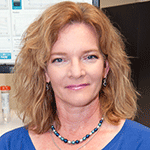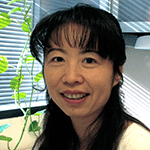Richard Wilson, PhD, director of The Genome Institute at Washington University School of Medicine in St. Louis, was named the world’s most-cited researcher by Thomson Reuters’ ScienceWatch, an open web resource for science metrics and analysis.
The annual ranking of the Hottest Researchers tracks research across various scientific disciplines to determine which recently published papers were cited most often by other scientists.
Four Washington University scientists – all from The Genome Institute – were included in the ranking of the top 21 most influential researchers, based on citations by other scientists.

The university was the only institution to have more than one scientist on the list, which highlights emerging trends in science and the innovators behind them.
The annual report features the “who’s who and the what’s what of scientific research,” ScienceWatch notes. “These are the thought leaders of today. They are the individuals whose research is blazing new frontiers and shaping tomorrow’s world.”
Wilson led the ranking with 15 significant works. Elaine Mardis, PhD, co-director of The Genome Institute, and genome scientist Li Ding, PhD, each had 12 frequently cited papers and were the only women on the list. Geneticist Robert Fulton had 11 papers.

Among their most-cited works are papers on breast, colon and brain cancer, leukemia, the microbiome and a map of human genetic variation compiled by decoding the genomes of more than 1,000 people whose homelands stretch from Africa to Asia and Europe.
The report named genomics as the hottest field of study, with eight of the 21 hottest researchers focusing their research in that discipline.
The year’s Hottest Researchers were identified using citations that occurred during 2012 for papers published 2010 through 2012.

This is the third consecutive year that Wilson has been ranked in the annual survey and his first at the top of the list.
“Our annual Hottest Research ranking offers a unique perspective on the trends and influencers who are shaping the future of science,” said Christopher King, the editor of ScienceWatch. “By applying our rigorous analysis of citation from the Web of Science to the full body of scientific literature published each year, we are able to put the pieces in place to begin to forecast tomorrow’s biggest breakthroughs.”
Scientists at The Genome Institute are highly regarded for their pioneering efforts to sequence and analyze the genomes of cancer patients and their tumors, considered essential to developing better ways to diagnose and treat the disease. They also are involved in analyzing the trillions of microbes that naturally live in and on the human body. This initiative, part of the federally funded Human Microbiome Project, is proving to be important to understanding human health and disease.
The 1000 Genomes Project, also funded by the NIH, involves cataloging the immense human variation written into the genetic code. The Genome
Institute also has teamed with St. Jude Children’s Research Hospital to
decode the genomes of more than 600 childhood cancer patients as part of
an unprecedented effort to identify the genetic changes underlying some
of the deadliest pediatric cancers.
Washington University School of Medicine’s 2,100 employed and volunteer faculty physicians also are the medical staff of Barnes-Jewish and St. Louis Children’s
hospitals. The School of Medicine is one of the leading medical
research, teaching and patient care institutions in the nation,
currently ranked sixth in the nation by U.S. News & World Report. Through its affiliations with Barnes-Jewish and St. Louis Children’s hospitals, the School of Medicine is linked to BJC HealthCare.